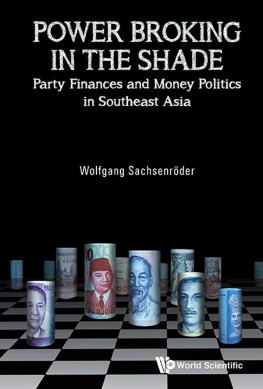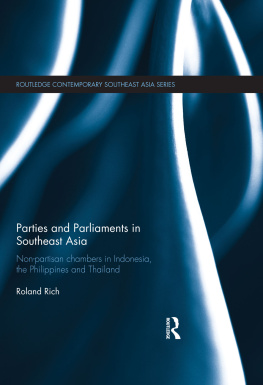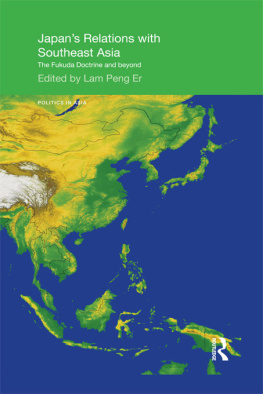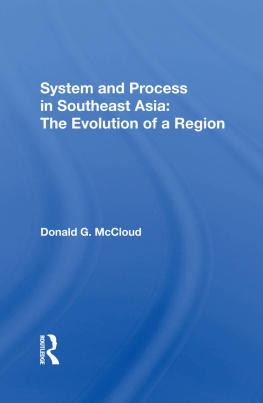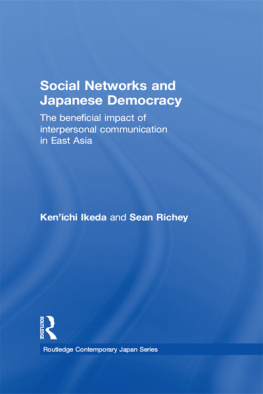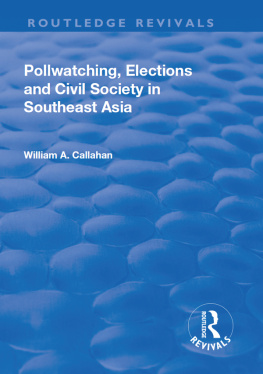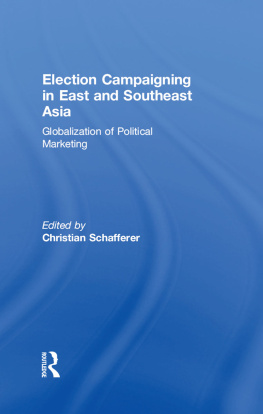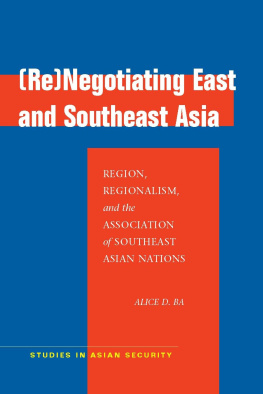
First published 1998 by Ashgate Publishing
Reissued 2018 by Routledge
2 Park Square, Milton Park, Abingdon, Oxon, OX14 4RN
711 Third A venue, New York, NY 10017
Routledge is an imprint of the Taylor & Francis Group, an iriforma business
Copyright Friedrich Naumann Foundation 1998
All rights reserved. No part of this book may be reprinted or reproduced or utilised in any form or by any electronic, mechanical, or other means, now known or hereafter invented, including photocopying and recording, or in any information storage or retrieval system, without permission in writing from the publishers.
Notice:
Product or corporate names may be trademarks or registered trademarks, and are used only for identification and explanation without intent to infringe.
Publishers Note
The publisher has gone to great lengths to ensure the quality of this reprint but points out that some imperfections in the original copies may be apparent.
Disclaimer
The publisher has made every effort to trace copyright holders and welcomes correspondence from those they have been unable to contact.
A Library of Congress record exists under LC control number: 98070121
ISBN 13: 978-1-138-33294-2 (hbk)
ISBN 13: 978-1-138-33295-9 (pbk)
ISBN 13: 978-0-429-44626-9 (ebk)
Contents
Wolfgang Sachsenrder
Baogang He
Tomohito Shinoda
Yong-Ho Kim
Jiann-Jong Guo, Shih-Hsin Huang and Min-Hsiu Chiang
Guide
The research for this book project has been prepared and funded by the liberal Friedrich Naumann Foundation from Germany. Our thanks for advice and support go to our colleagues in the Foundations offices in Bangkok, Jakarta, Manila and Seoul, as well as to our colleagues in the East and Southeast Asia Regional Head Office in Singapore where the study was planned and carried out.
In numerous discussions during the last few years, our partners and friends in the region, from parliaments, political parties, governments, think tanks, research institutes, universities and the media have encouraged us in the pursuit of this project and supported us with their enlightening advice. In many cases, they have helped us to identify the authors of the country papers.
With our cordial thanks to all of them, we want to convey our best wishes for the stable and successful development of Asias democracy.
We also thank our authors for their cooperation and patience with the editorial time pressure.
The findings, interpretations and conclusions expressed represent the view of the respective authors.
The editors
Singapore
October 1997
Political parties are essential to democratic governance. Yet they are relatively a new phenomenon in the long political history of our region. Even more recent are political parties with a clear-cut agenda and a visible track record in favour of open society, liberal democracy, the rule of law, protection of human rights and the political participation of all citizens.
As leader of the Democrat Party of Thailand, one of the oldest in the Asia-Pacific region, I can proudly build on the democratic efforts of our political forebears who established our party back in 1946. We, Thai Democrats, are fortunate to have a strong liberal and democratic foundation bequeathed to us by successive generations of our forefathers.
Unlike us in Thailand, however, many like-minded democrats in the region have been confronted with an even more formidable political climate in their countries. The colonial masters, of course, fearing for their power, did not encourage the formation of democratic movements, not to speak of independent political parties, among the native population in their territories. Thus, the struggle for democracy has been faced with two obstacles: the colonial powers and the authoritarian and feudal traditions within our own societies.
Asia, deemed for a long time by Western observers and politicians as being authoritarian by history and inclination, has proved beyond any doubt, in the meantime, that genuine democratic movements are prevailing in many countries and that democratic rules are increasingly providing direction for political development. The Asians, a hard working and economically successful people, are aspiring, like anybody else, to the democratic institutions that will give their efforts and achievements the necessary stability and continuity.
It is indeed a timely and worthwhile endeavour of the authors and editors of this study to look into the development of political parties and party systems in our region. The comparative approach may help us politicians find the most suitable and effective solutions for the development of the legal and philosophical framework for our common task of establishing a just, free, open and stable political system.
I congratulate the German Friedrich Naumann Foundation on its foresight in encouraging and coordinating this useful research effort. It is hoped that this book will help inspire those of us who are in the midst of our struggle for our liberal democratic ideals. I sincerely hope also that this collective effort marks the beginning of a more systematic and thorough investigation into our history of democratic endeavours in the Asia/Pacific region.
Chuan Leekpai
Prime Minister of the Kingdom of Thailand
30 November 1997
Bangkok
WOLFGANG SACHSENRDER
Introduction
Throughout the ongoing democratization process in the region, the attention of political observers and the media has mainly been directed to the existing parliamentary institutions and procedures. However, not too much attention has been given to the internal development of political parties and their structures, nor to their changing roles in the developing democracies of East and Southeast Asia. This is hardly surprising, since organizational structures within many parties seem at least to be fragile, if not completely volatile. Capricious changes of positions, leaders or even large numbers of the membership, changing alliances through mergers, splits and newly emerging parties in all manner of unlikely coalitions between the strangest bedfellows give confusing signals to voters and observers alike. This may partly explain why party leaders and office bearers, who are more prominent and sometimes form the more stable elements of party life, have usually enjoyed the limelight, whereas party machineries are taken for granted and remain to a certain extent, obscure. This situation seems to suggest that charismatic, authoritative or even authoritarian leaders play a more important role than party structures in maintaining political stability and continuity. At the end of an era of nation building, after a long colonial period, the generation of founding fathers of the calibre of Lee Kuan Yew in Singapore, Mahathir in Malaysia or Suharto in Indonesia is still more visible than the organizations they created to maintain their power. The media and leading politicians attribute this, to a certain extent, to Asian traditions or values. It may therefore be timely and worthwhile to examine this theory further and see whether it can be supported in an empirical analysis of the facts of party politics. It is one of the aims of this book to provide more insight, facts and arguments for a better understanding of the role of political parties in Asian politics.


